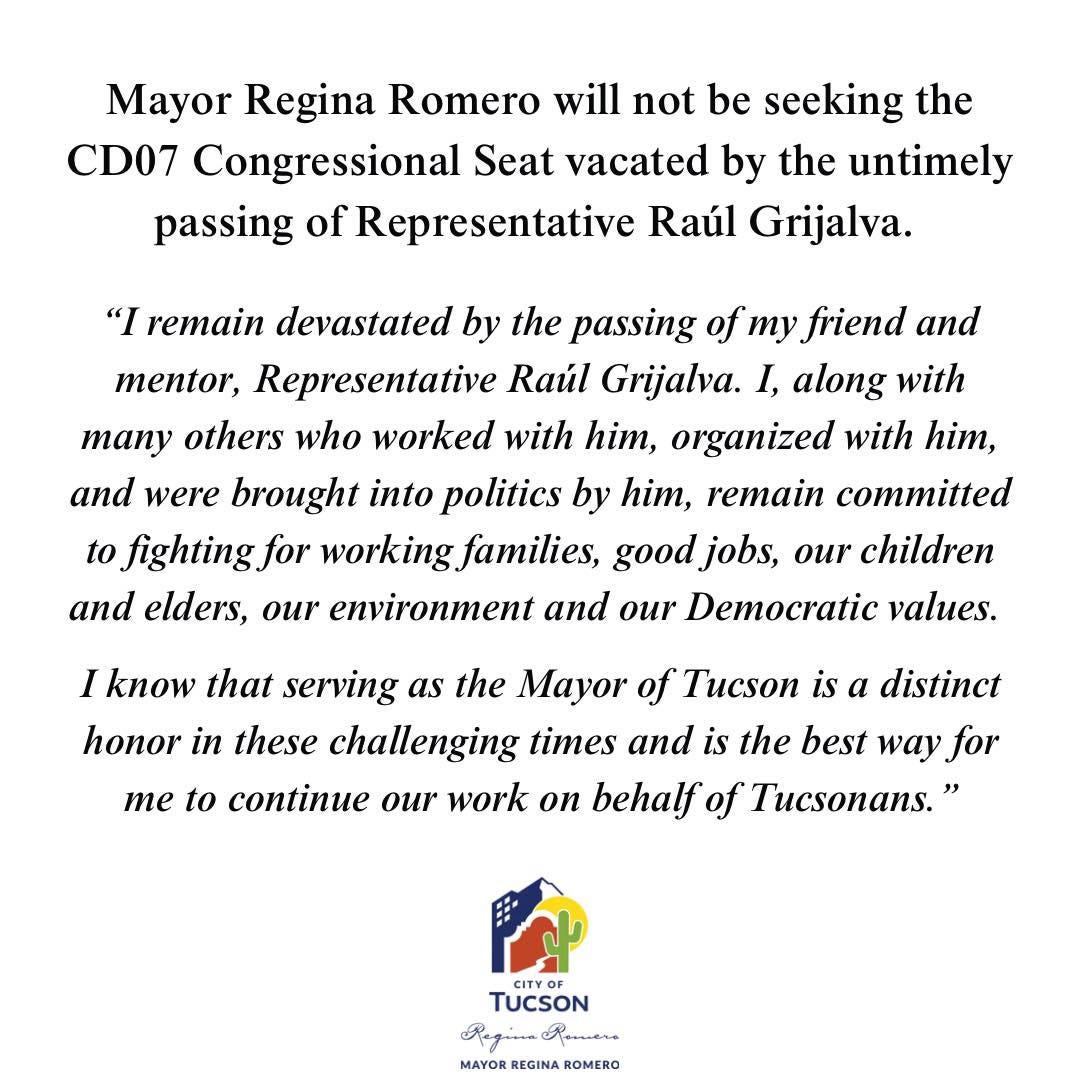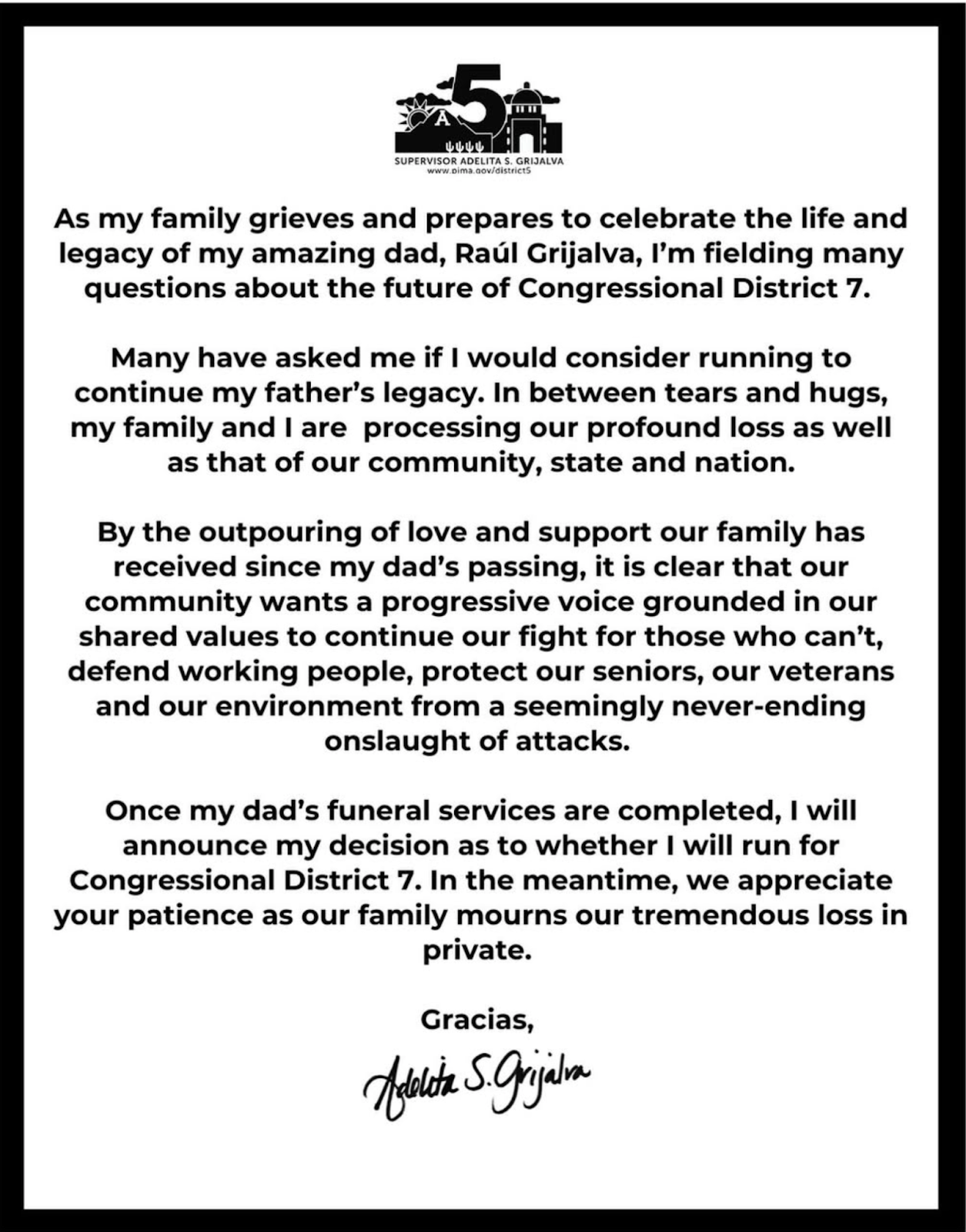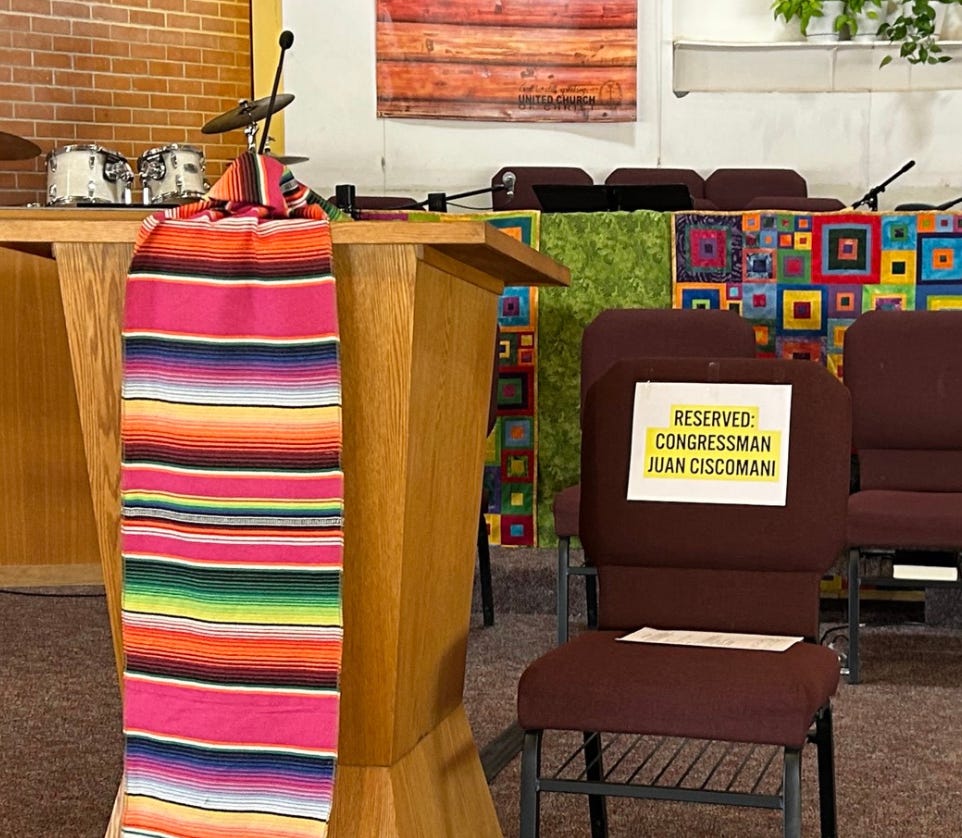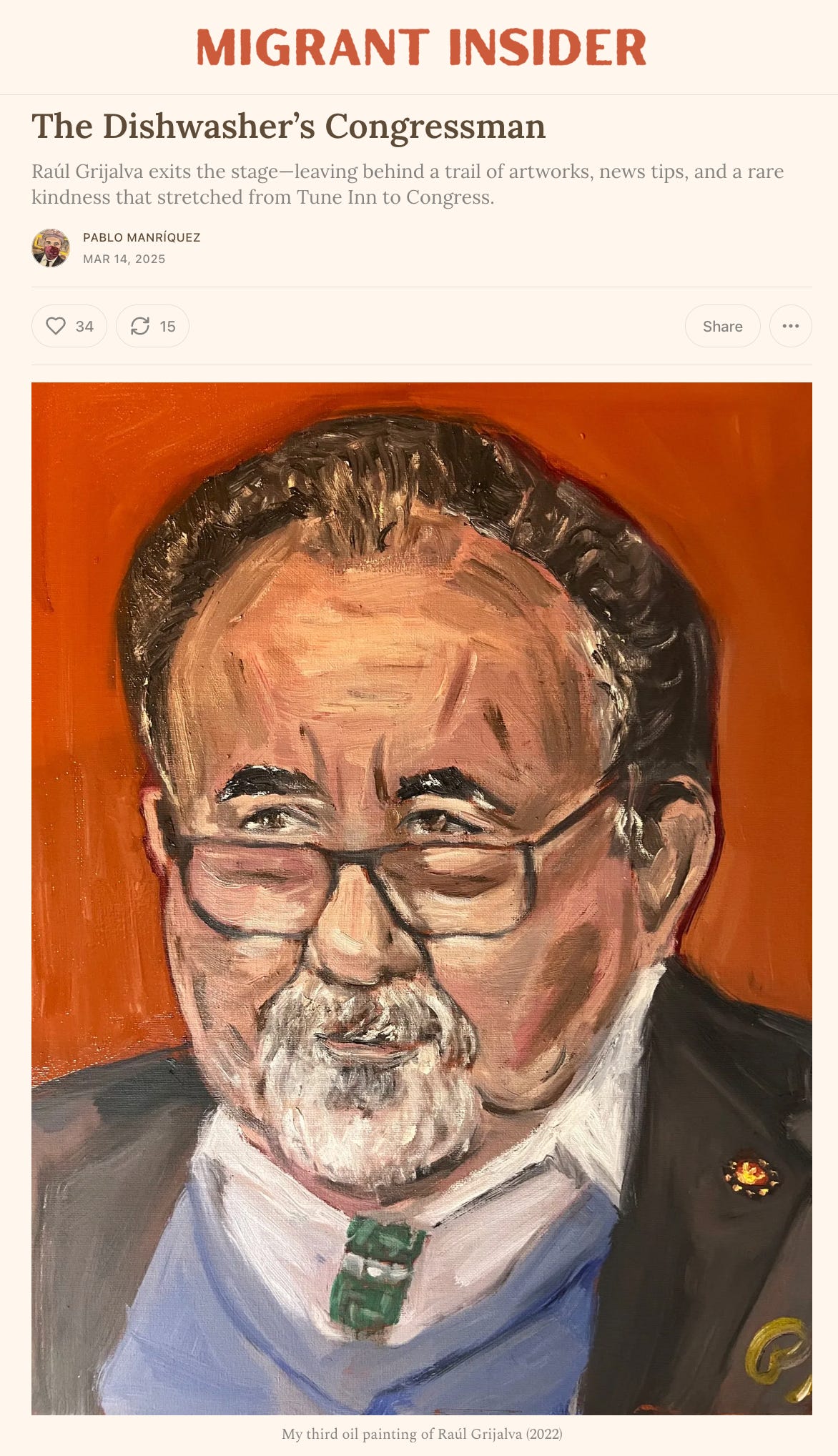Legal battles loom
Gun law debate continues ... The "mayor" of the bar ... And climate is more complicated than that.
The Pima County Board of Supervisors will be spending a lot of time behind closed doors with their attorneys tomorrow.
There are four items on the Board’s executive session agenda, but the first might be the most interesting: How to respond to a Pima County Superior Court judge’s ruling that overturned a County ordinance requiring gun owners to report lost or stolen guns within 48 hours.
County officials were bullish a year ago when they passed the measure, noting they worked closely with the Pima County Attorney’s Office, as well as the Arizona Attorney General’s Office. They were hopeful the new ordinance would deter so-called “straw” purchases (buying a gun for someone who is not legally allowed to own one).
But a judge ruled last month that state law bars cities and counties from adopting gun ordinances that are more restrictive than state laws.
This isn’t the first time that local Democratic officials have found themselves on the losing end of political fights and court cases involving guns.
In 2019, the City of Tucson passed a non-binding resolution calling on state and federal officials to ban “bump stocks” and other kits to modify guns. A legal analysis by the city said it didn’t have the authority to restrict firearms sales without facing economic reprisals from the state Legislature.
In 2013, the city’s gun buyback program, where officials gave $50 gift cards in exchange for guns, led the Legislature to pass a law requiring cities to sell off confiscated guns, rather than destroy them. That ended buyback partnerships with the city.
That same law led to the undoing of a Tucson ordinance that had allowed the city to destroy firearms that were confiscated or handed over voluntarily by citizens. In 2017, the Arizona Supreme Court overturned the city’s 2005 ordinance, so the city must now sell the guns to licensed gun dealers.
That’s just to name a few.
As for the state law that blocked the county’s ordinance about straw purchases, the Board of Supervisors voted 3-2 in 2022 to ask state legislators to reverse it, in part so the County could require background checks at gun shows at the Pima County Fairgrounds.
Tomorrow, County officials will try to figure out their next step in this long-running legal saga.
Other legal fights
The Board of Supervisors also will discuss how to respond to a March 11 letter from FEMA challenging $10.3 million in federal reimbursement related to migrant shelters, as the Tucson Sentinel reported last week.
Pima County officials believe similar letters were sent to the state, Maricopa and Yuma counties and a Maricopa County-based nonprofit.
We’re not sure whether a third item, placed on the agenda by the Pima County Attorney’s Office, is related. The memo simply refers to “litigation related to recent executive orders and related federal actions.”
Looking ahead
Supervisor Adelita Grijalva placed an item on the agenda to create an outreach program to help homeowners remove racist language from home deed covenants (CCRs). The program largely applies to homes built before 1948, when restrictions were put on home ownership.
Racist CCRs have been unenforceable since 1968, but this helpful website outlines which neighborhoods in the greater Tucson area might still have them. (Not every house on the map will have a racist covenant, despite what the map says. Homeowners have had the ability to remove the offensive language for years.)
Supervisor Matt Heinz wants the Pima County Health Department to deploy mobile vaccination units to all Pima County schools where the measles, mumps and rubella (MMR) vaccination rate is below 95%.
An attending physician at the Tucson Medical Center since 2003, Heinz knows a 95% vaccination rate (or better) ensures herd immunity - which protects those who can’t be vaccinated. (One of our new publications, the Education Agenda, broke down the political dynamics of measles vaccinations in Arizona schools last week.)
Tune in tomorrow as Joe live-posts the most interesting tidbits from public meetings. And subscribe to the Agenda today so you don’t miss out on what’s happening in local government and politics.
In the wake of the death of Congressman Raúl Grijalva last week, Gov. Katie Hobbs announced on Friday that the Congressional District 7 special primary election will be July 15, followed by a special general election on September 23.
As we noted on Friday, there are a number of prominent local Democrats who might jump in the race, and we’re expecting a lot of announcements this week.
Mayor Regina Romero announced on Friday that she has no plans to run.
Another potential candidate, Supervisor Adelita Grijalva, said she won’t announce whether she’s running until after her father’s funeral services.
Maybe the Tesla dealership in Tucson should open later on Saturdays.
Last weekend, the latest protest in front of the showroom set a new record, with organizers estimating the crowd size was close to 2,000.
George Daranyi first came to the protests two weeks ago, looking for a way to get involved.
“I came here because I was really frustrated with the direction of the country, and I was particularly worried about the violation of constitutional law and the betrayal of the rule of law. And basically, at its core, we were losing our democracy, and I felt powerless to do anything about it,” he said.
On Saturday, Daranyi and his wife brought a wireless microphone and large portable speaker, leading chants and encouraging the ever-growing crowd, including singing the Star-Spangled Banner.
Saturday also had a town hall for Republican Rep. Juan Ciscomani. Sort of.
LUCHA AZ, Arizona Jobs for Justice, Honest Arizona, ACE, Care in Action AZ, Working Families Power, and community partners held a town hall in midtown Tucson. They invited Ciscomani - but he didn't come to the event - and so the invited speakers talked to an empty chair.
Vermont Sen. Bernie Sanders is coming back to Tucson on Saturday and he’s bringing several guests with him.
Sanders - who had close ties to Raúl Grijalva - will bring U.S. Reps. Alexandria Ocasio-Cortez and Greg Casar for a rally titled “Fighting Oligarchy: Where We Go From Here.
It was a good run: The Tucson City Council is dealing with the fallout of the failure of Proposition 414, after several wins with propositions in recent years, Arizona Daily Star columnist Tim Steller writes. Tucson Sentinel columnist Blake Morlock urges the “I doanwanna” coalition that led the “no” campaign against Prop 414 to bring whatever solutions they might have into the public conversation.
Keep an eye on this one: Over the weekend, President Donald Trump invoked the Alien Enemies Act of 1798 to deport any Venezuelan migrants that officials say are part of the Tren de Aragua gang, the New York Times reports. The law had been used just three times before in U.S. history. A federal judge quickly issued a temporary restraining order, and verbally told officials to turn around any deportation flights that already were headed to El Salvador. But two of them landed in El Salvador. “Oopsie…too late,” Salvadoran President Nayib Bukele, who has led a brutal crackdown on gang members in his country, wrote in a tweet above a news story about the judge’s order. Donald Trump, Jr. retweeted Bukele’s post.
Where it all began: A battle over a park on Tucson’s west side in the 1970s was a defining moment for the local Chicano rights movement, and one of the first big political wins for Congressman Raúl Grijalva, the Star’s Tony Davis reports. In Washington, D.C., the gregarious Grijalva came to be known as the “mayor” of a watering hole frequented by members of Congress, Pablo Manríquez, a reporter and former employee at the dive bar, wrote in a tribute to Grijalva.
“He’d bum us cigarettes, Marlboro Reds, with fingers gritty as ours, and sometimes slide a fiver across the bar with a gruff, “Get yourself a beer, Pablo,” Manriquez wrote. “Grijalva was the only congressman who ever really saw us.”
Book talk: Libraries in Pima County have been a hot topic lately. The county considered closing some branches, which led to widespread public disapproval. Retiring Pima County Library Director Amber Mathewson sat down with the Arizona Luminaria’s Yana Kunichoff to talk about budgets and what libraries mean to communities.
Empty boxes: Big-box stores are closing left and right in Tucson and there aren’t any easy ways to avoid having a bunch of empty commercial buildings dot the city’s landscape, the Star’s Gabriela Rico reports. Given the high construction costs this year and the city’s zoning rules, developers are looking for new uses for the closed stores, like bowling alleys or pickleball courts.
Calling for a recall: The Santa Cruz County sheriff could face a recall election, the Nogales International’s Daisy Zavala Magaña reports. A Tubac resident, Dan Dellinges, who used to volunteer at the sheriff’s office and frequently comments at Santa Cruz County Board of Supervisors meetings, filed paperwork to unseat Sheriff David Hathaway, a Democrat. Dellinges claims Hathaway targeted his political opponents, mishandled a high-profile investigation, and withdrew from a federal program that funds local border enforcement, among other complaints.
Supervisor Steve Christy’s latest request to discuss COVID-19 presidential executive orders earned the attention of Jane Orient.
Orient, a doctor who is skeptical of coronavirus vaccines and promotes an anti-malaria drug hydroxychloroquine as a Covid treatment, is the executive director of the Tucson-based Association of American Physicians and Surgeons.
In her letter to the Board of Supervisors, Orient said the County needs to “make whole” any County employee who was harmed by COVID-related restrictions on their rights.
What really got our attention was when Orient decided to talk about a County climate program in the same letter, mostly because she seemed determined to not understand why officials would spend money on programs to cut down on pollution and fossil fuels.
“Why $2 million for "climate resilience"? How is this spent? The county can do absolutely nothing to affect the climate. Tucson is hot in summer, sometimes freezes in winter, and sometimes rains,” Orient wrote.











Tesla owners who are upset by Elon Musk's anti-democratic actions and dishonest words should consider donating their Tesla to NPR or perhaps better yet, the Tucson Agenda.
Thank you Tucson Agenda for covering and posting the protest events in Tucson over the weekend! I shared
George's YouTube video, credit given, to Bluesky.